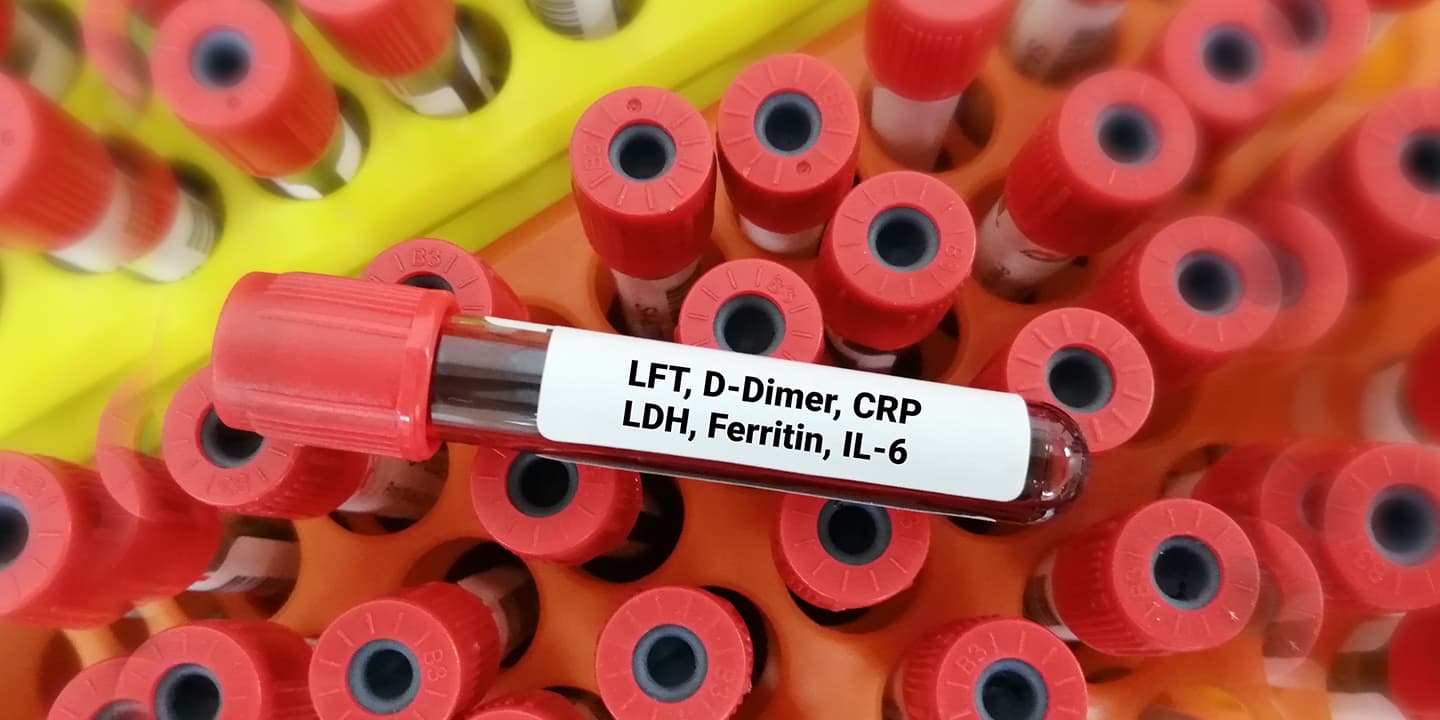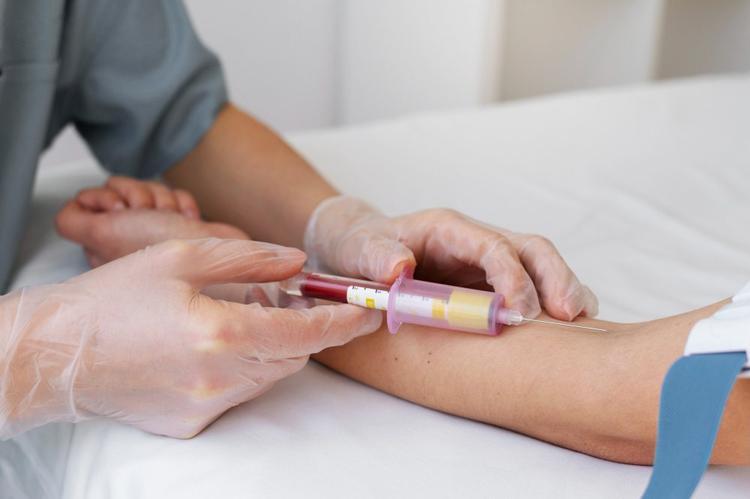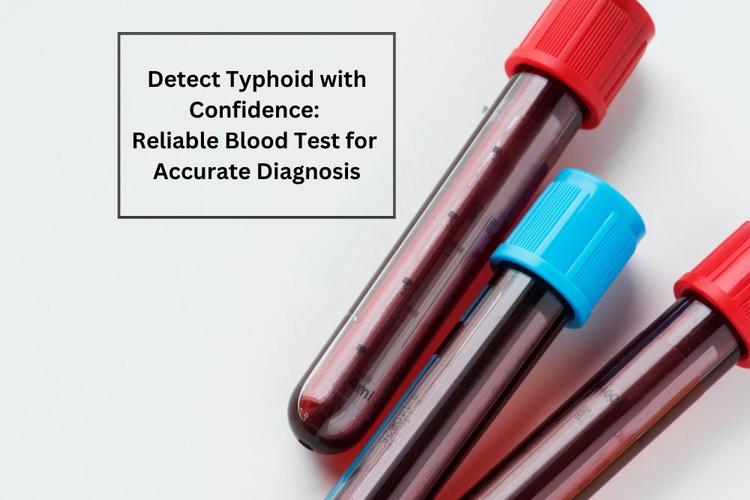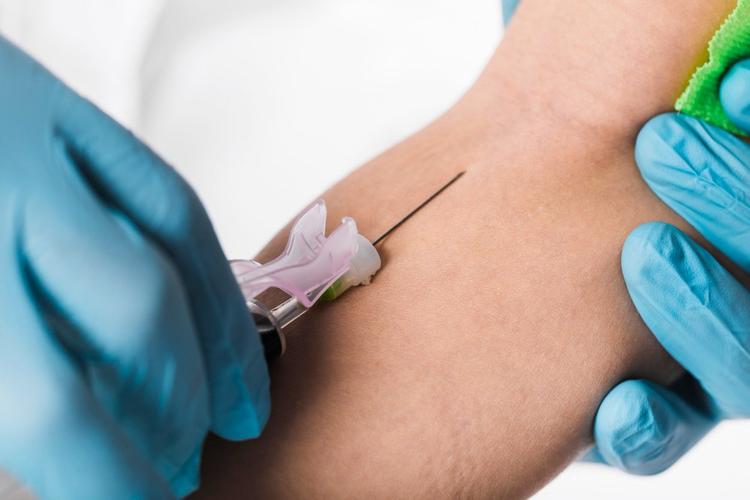LDH Test: Price, Preparation, Need, Results 2024

Medically Reviewed By
Dr Divya Rohra
Written By Kirti Saxena
on Apr 13, 2022
Last Edit Made By Kirti Saxena
on Mar 18, 2024

LDH test or lactate dehydrogenase test looks for tissue damage in the body. Accidental injury, trauma, or diseases lead to tissue damage. LDH is a protein present in almost all tissues, including muscles, blood, brain, kidney, lungs, and other organs.
Lactate dehydrogenase goes high when the tissues get damaged or ruptured due to various reasons and get circulated in the blood and fluid system of the body. High levels of LDH in an LDH test mean that the body tissues are getting damaged because of diseases or injury.
This article discusses everything about serum LDH tests and what the results of these tests indicate.
LDH Test: What is it?
Lactate Dehydrogenase, lactic acid dehydrogenase, or LDH is a type of protein or an enzyme present in all the cells of tissues and organs. When the cells are intact, lactate dehydrogenase functions to process glucose conversion to energy. In other words, the body utilizes LDH to generate energy.
High amounts of LDH are produced and released into the bloodstream or body’s fluids when the tissues or cells are damaged or ruptured. The LDH test measures lactate dehydrogenase levels in the blood and body fluids.
What does the LDH test measure?
The test measures the level of lactate dehydrogenase enzyme in the blood. LDH is an enzyme that plays a key role in the process of converting glucose (sugar) into energy within cells.
It's found in various tissues and organs throughout the body, including the heart, liver, kidneys, skeletal muscles, and red blood cells. The test detects LDH released into the bloodstream due to cell damage. Elevated LDH levels are associated with several conditions, such as heart attacks, liver diseases, infections, and cancers.
Why do you need an LDH test?
The reasons for an LDH test include:
- To check the possibility of tissue damage,
- To understand the extent of the damage,
- To monitor severe infections or conditions- hemolytic anemias, kidney disease, liver disease, and lung diseases,
- To help assess certain cancers and chemotherapy.
Sometimes, a regular LDH will be recommended depending on the health condition.
LDH levels in body fluids are checked for the following reasons:
- To find the exact cause of fluid buildup, injury, infection, or inflammation in the body.
- To help determine bacterial or viral meningitis.
Preparation for LDH test
Before undergoing any medical test, it's essential to consult your healthcare provider. Follow the below guidelines:
- Fasting: You don't need to fast before an LDH test.
- Medication Review: Inform your healthcare provider about any medications, supplements, or over-the-counter drugs you are taking.
- Hydration: Staying adequately hydrated is important before the test. Drink plenty of water to ensure accurate test results.
Alcohol and Caffeine: Avoid excessive alcohol and caffeine consumption before the test, as they can affect blood enzyme levels.
How is an LDH test carried out?
LDH test by drawing blood is a routine blood test where a certain amount of blood sample is removed from the veins of the arms.
It is necessary to inform your doctor about the medications, supplements, herbal products, and vitamins taken before the tests.
LDH tests of the cerebrospinal fluid involve the insertion of a tiny needle into the lower back to draw fluids.
Interpretation of LDH test report
The normal ranges of LDH vary between laboratories. Measured in units per liter, the normal range of LDH in the blood is between 140 U/L 280 U/L for adults. The levels tend to be high in children and teenagers.
The normal ranges in cerebrospinal fluid
- For newborns is less than 70 U/L and,
- Less than 40 U/L for adults.
Higher than normal LDH levels in cerebrospinal fluid may indicate probable infection or inflammation of the central nervous system. Other conditions cause due to high LDH levels include:
- Anemia
- Kidney diseases
- Liver diseases
- Pancreatic infection-pancreatitis
- Muscle injury
- Heart attack
- Infections- spinal meningitis, encephalitis, and infectious mononucleosis
- Certain cancers- lymphoma and leukemia.
Elevated LDH levels are also seen when treatment for cancer or chemotherapy is not effective enough.
High LDH levels also may prompt your doctor to recommend more tests to check the exact location of the damage. One such test is the LDH isoenzyme test. An LDH isoenzyme test measures different forms of LDH that can help determine the location, type, and severity of tissue damage.
The rise in blood LDH level may be because of strenuous exercise, excess vitamin intake and does not indicate any severe condition. Sometimes, high blood LDH may be due to increased platelet count.
Health problems that may cause High LDH
High LDH (lactate dehydrogenase) levels in the blood can be indicative of various health problems, as LDH is released into the bloodstream when cells are damaged or destroyed.
- Tissue Damage and Injury: Any injury or trauma that causes damage to tissues, such as muscle injuries or fractures.
- Heart Conditions: Heart attacks (myocardial infarctions) often lead to increased LDH levels due to damage to heart muscle cells.
- Liver Diseases: Conditions affecting the liver, such as hepatitis, cirrhosis, and liver tumors, can cause elevated LDH levels.
- Kidney Diseases: Kidney damage or disease, including acute kidney injury or chronic kidney disease, can be associated with high LDH levels.
- Cancers: Various types of cancer, particularly cancers with rapid cell turnover or tumors that invade tissues, can lead to elevated LDH levels. Examples include lymphomas, leukemia, and metastatic cancers.
- Hemolytic Anemia: This condition involves the destruction of red blood cells at a faster rate than they can be produced, resulting in increased LDH levels.
- Infections: Bacterial, viral, or other types of infections can cause tissue damage and subsequent release of LDH into the bloodstream.
- Lung Diseases: Conditions such as pneumonia, acute respiratory distress syndrome (ARDS), and pulmonary embolism can lead to elevated LDH levels due to lung tissue damage.
- Pancreatitis: Inflammation of the pancreas can cause elevated LDH levels, along with other pancreatic enzymes.
- Muscle Disorders: Certain muscle disorders, like muscular dystrophy or rhabdomyolysis (rapid muscle breakdown), can result in increased LDH levels.
- Stroke: Stroke or cerebrovascular accidents can cause damage to brain cells and lead to elevated LDH levels.
Lymphoma: Lymphomas, a type of cancer that affects the lymphatic system, can lead to elevated LDH levels.
Are LDH tests associated with any risks?
LDH tests are less likely to cause risks. However, after a blood LDH test, one may observe bleeding, bruising, or pain at the site of blood withdrawal. After a cerebrospinal fluid withdrawal, one can experience:
- Mild headache
- Infection
- Bleeding, inflammation, or numbness
Tips to control High LDH
Here are some general tips that can help you control your high LDH:
- Medical Evaluation: Consult a healthcare professional to determine the cause of the high LDH levels. Take the LDH test to identify the specific condition that needs to be addressed.
- Healthy Lifestyle: Try to follow a healthy lifestyle to manage your high LDH levels. This includes maintaining a balanced diet, staying physically active, getting enough sleep, and managing stress.
- Manage Chronic Diseases: If you have chronic diseases like diabetes, hypertension, or autoimmune disorders, consult with your healthcare provider to manage these diseases effectively.
Stay Hydrated: Drink enough water to stay hydrated for overall health.
What is the Price of an LDH Test?
The price of the LDH Test varies from city to city, depending on the technique used. However, with Redcliffe Labs, we keep prices for routine to specialized tests at competitive possible. With us, the LDH test price is just Rs 299.
Conclusion
LDH tests either analyze blood or fluids in the body to check the lactate dehydrogenase functioning. LDH tests help determine if there is tissue damage in the body. Higher levels of LDH in cerebrospinal fluids can indicate chronic or severe health conditions. Further tests, however, will be required to assess the type, severity, and location of the damage. The elevated LDH levels in the blood, though does not signify a health problem, can be due to varied reasons. Contact your doctor to know your body condition and get relevant tests done.



